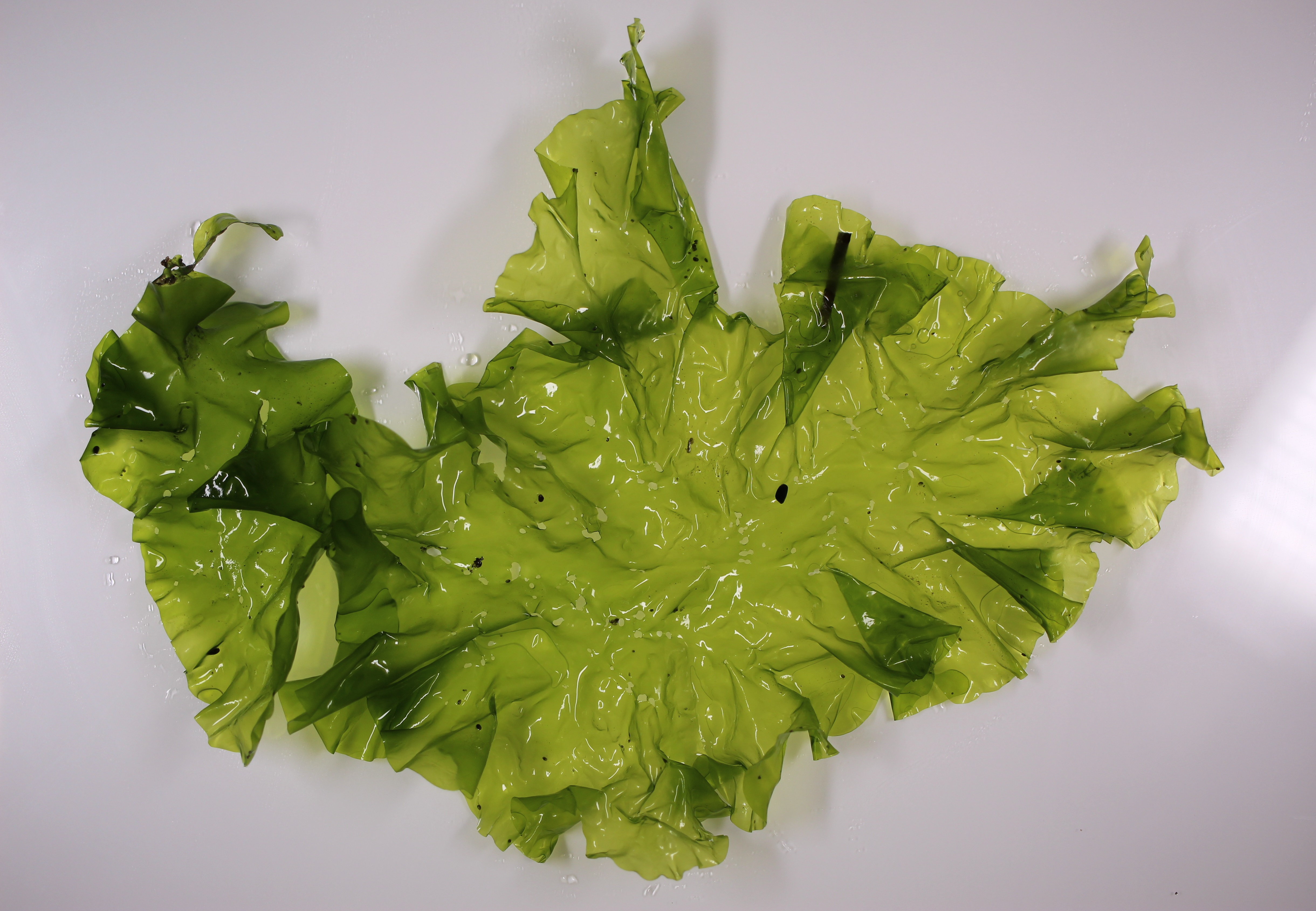
BIOALGAFOOD
The objective of BIOALGAFOOD is the, for the first time at national level, development of sustainable cultivation of two selected species of macroalgae from the Greek marine flora (Chrodracanthus teedii and Ulva rigida) for the production of hydrocolloids (κ-carrageenan and ulvan, respectively) which will be used as raw materials for the development of new and / or improved foodstuffs with biological activity and “Greek identity” but also as thickening agents that will improve the texture of the products to which they will be added.

The ultimate goal of the project is to ensure the self-sufficiency of the Greek market in k-carrageenan and the total replacement of imported raw materials, but even more importantly the, for the first time, industrial production of ulvan worldwide. In addition to the generation of new knowledge, the commercial activities of the participating enterprises will be expanded, resulting in the strengthening of their turnover in the local market, as well as of their export potential. At the same time, the environmental footprint of fish hatcheries will be reduced, contributing to the improvement of the quality of life of local communities. The commercial exploitation of the results is expected to create new jobs and improve the trade balance of the national economy.
The coordinator of the project is YIOTIS company. KEFISH, CHC and INALE are participating in the consortium.
Specifically:
Successful completion of the project will lead to:
• Development of methodology for intensive aquaculture of the selected species in Greece.
• Development of a methodology for the extraction and processing of algae biomass for the production of polysaccharides.
• Promotion of the biological action of the ingredients from the cultivated macroalgae and their use in the production of high value-added foods.
• Reduction of the environmental footprint, as macroalgae cultivation will be combined with aquaculture units which will provide the algae with nutrients, acting also as a biological filter reducing nitrogen-phosphorus load.
The ultimate goal of the project is to secure the adequacy of the Greek market for k-carrageenan and the replacement of imported raw materials, but more importantly the industrial production of ulvans for the first time worldwide.
The implementation of the proposed project will set the basis for the development in Greece of a sustainable and controlled production of k-carrageenan and ulvans, as well as bioactive refined extracts from the intensive cultivation of the selected macroalgae with multiple economic, social and environmental benefits.
The patents of the products that will result from the project are considered to be of the utmost importance, as they will allow the exploitation and commercialization of results by all partners equally.
Specifically, the results of the project are expected to lead to the following benefits:
• Reduction of the production costs of existing YIOTIS products containing k-carrageenan (cold or hot instant powder products).
• Development of new functional products.
• Contribution to the creation of a strong and recognizable Greek identity of food and dietary supplements, thus enhancing their added value.
• The production of ulvans in industrial-scale, will give CHC & KEFISH a huge competitive advantage, enabling them to enter the high-value-added raw material market.
• Strengthening of YIOTIS's turnover in the local market, as well as its export activity, as the company will be able to access markets, such as those in the Balkans and the Middle East.
• Expansion of research interests and know-how of FRI in algae cultivation for the production of hydrocolloids.
• Publications & announcements in scientific conferences.
• The exploitation of the results will ultimately strengthen the competitiveness of the Greek industry and enhance the efforts for penetration in new markets, resulting in the creation of new jobs and at the same time improving the trade balance for the Greek economy.
• Strengthening of the aquaculture sector.
• Ensuring the adequacy of the Greek market for k-carrageenan and universal replacement of imported raw materials for the industries using them.
• Possibility to develop food supplements and stimulate the Greek industry.
• Reduction of the environmental footprint of fisheries, contributing to the quality of life of local communities.
• Possibility of utilization of the residual biomass as fertilizer or fish feed in future in the context of the Cyclical Economy.
